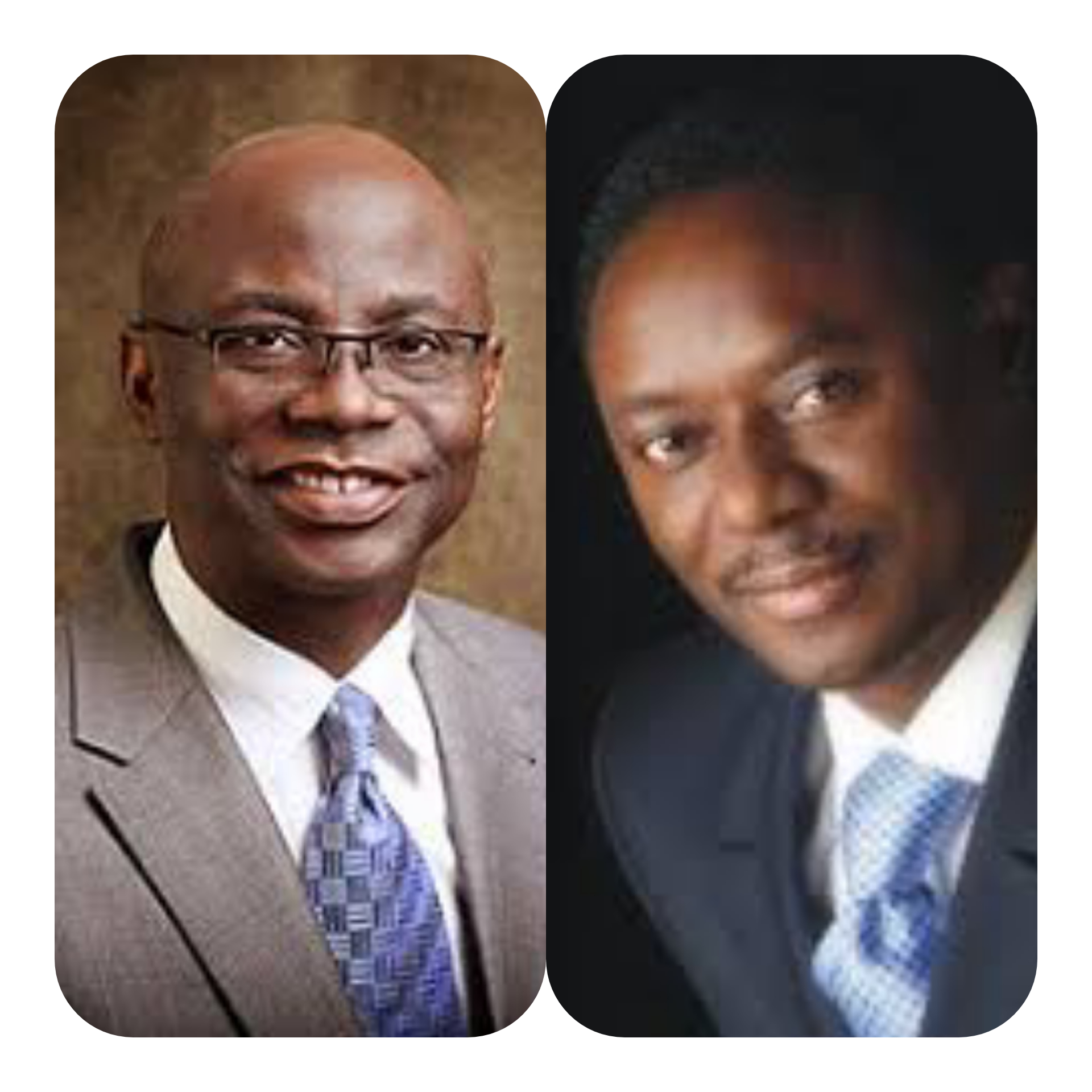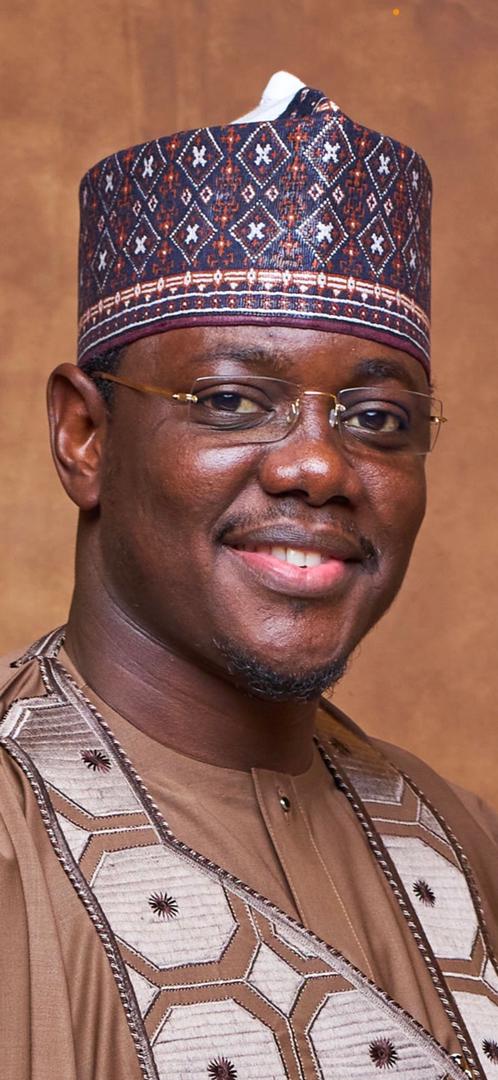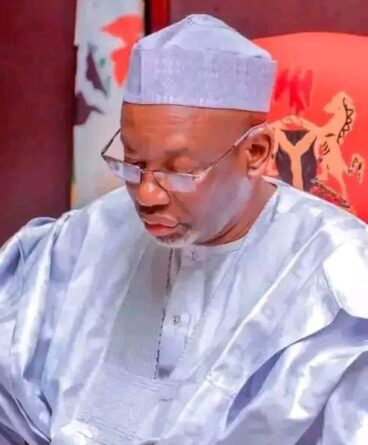By Ehichioya Ezomon
“The only thing necessary for the triumph of evil is for good men to do nothing.” This declaration by Edmund Burke is apropos for the clamour for religious leaders to join politics and lead by uprightness in governance.
But it appears that Nigeria’s “Men of God” of the Christian faith have taken undue advantage of the people’s desire for change, to want to cut corners to get to power.
Without as much as doing the heavy lifting of politicking and engaging the voters, some clergymen want power on a platter via gimmickry, blackmail or barefaced threats.
The religiously-inclined office seekers employ diverse strategies, the most abused being to invoke God’s name as anointing, choosing or endorsing them for president.
They claim, without going through the rigours of an election, that God has anointed them to inherit the victory of a president-elect, who, they predict, won’t be sworn-in due to ill-health, death or other untoward circumstances.
The clergymen also claim that God has endorsed them to take over from an incumbent president, in a caretaker or an interim capacity, until a new president is elected.
And they strive to get to power by asking presidential candidates to drop their ambition and allow them to be president, to tackle thorny national issues of the day.
In these ploys, the political clerics assume that by invoking God’s name, the electorate would vote for them, or agitate and plead for power to be freely given to them.
Let’s check the electoral landscape since democracy returned to Nigeria in 1999, and take a couple of such clerics that had literally thrown their hats into the ring.
Back in 2006, prior to the 2007 general election, popular televangelist and former music star, Pastor Chris Okotie, formed the Fresh (Democratic) Party (FP), to use as a vehicle to the presidency.
But each election cycle, Okotie hardly left the comfort zones of his Household of God Church in the Oregun area of Lagos State, the klieg-lights of television houses, and the print media, to solicit votes to be president.
He usually devoted a major session of every Sunday service to politicking, laying out the ills of the country, and how God had ordained him to become the “Messiah President” to take Nigeria to the Promised Land.
He would repeat the same themes, and act likewise at subsequent polls if his party and his name scaled the qualifying requirements of the electoral umpire.
Yet, Okotie and his party had barely reached or crossed the thousand-mark at the polls nationwide, making polity watchers to wonder why the voters shun him always.
Taken as a mandate, Okotie can record huge votes even from the “hallelujah” devotees of his church, and the non-congregant recipients of his yearly philanthropic awards.
But having taken vying for, and securing the presidency as a huge joke, Pastor Okotie is at it again for the 2023 presidential run, devising another ploy to get to power.
He’s asking the presidential candidates of the political parties for the February polls to step down for him, to take over from President Muhammadu Buhari in May 2023.
Accordingly, Okotie has urged Buhari to hand over to him as an interim president in 2023, as he claims to be the “right person to right the wrongs in the country.”
Okotie’s exact words: “I want to appeal to all presidential candidates to withdraw from the race and allow me to come in as the interim president. I want to implore Asiwaju (Bola Ahmed Tinubu, the candidate of the All Progressives Congress (APC) to support my government for the betterment of the country.
“And I also want to tell (Peter) Obi (the Labour Party (LP) flagbearer), that the system that introduced him cannot take him anywhere because he cannot operate in the system we have now. All the candidates should support me to succeed Buhari as the interim president.”
Okotie’s recourse to getting to power by any means but democratic, even as he admits the hijack of the polity by strong men, has received hisses from former Senator Shehu Sani (Kaduna Central).
In a tweet, the rights activist advised Okotie to go revive his political platform of Fresh Democratic Party, rather than attempting to derail the march to the 2023 elections.
Pastor Bakare, General Overseer of Lagos-based Citadel Global Community Church (CGCC), continues to glory in his zero score at the APC primaries early in June.
The lawyer-turned cleric, who’s candidate Buhari’s running mate in the 2011 polls, claims he’s been ordained by God to take over from Buhari, as the “16th President of Nigeria,” on an interim basis from May 2023.
Days after flunking the primaries, Bakare resurrected his 2019 “prophecy” of being Nigeria’s 16th president, noting he lost the primaries because he refused to compromise.
“Our heads remain unbowed because we did not compromise on the values that are integral to building a New Nigeria,” he told cheering congregants on June 12.
“For us, the means has always been as important as the end. This is why we confidently wear our ‘zero votes’ as a badge of zero tolerance for a certain kind of politics.”
Bakare, who shelled out N100 million, possibly donated by his congregants, to obtain the APC nomination forms, can’t be serious talking about not compromising values.
As he congratulates Tinubu for winning the APC primaries, Bakare wants a short cut to power by revisiting his old prediction: “I’m the next president come May 29, 2023.”
Recall that in September 2019, Bakare, delivering a church sermon, declared that “nothing can stop me from succeeding (newly re-elected President) Buhari” in 2023.
He told his ecstatic congregation: “Take it to the mountain top if you have never heard it before. I am saying it to you this morning, in the scheme of things, as far as politics of Nigeria is concerned, President Buhari is number 15 and yours sincerely (Bakare) is number 16.
“I never said that to you before, I want to let you know it this morning; nothing can change it, in the name of Jesus. He (Buhari) is number 15 (and) I am number 16.”
Isn’t it ridiculous that the religious partisans talking about a “New Nigeria” are craving for undemocratic tactics of the bigoted military era to install them as president?
No wonder Pastors Okotie and Bakare still live the dream of becoming president anchored on a reported prophetic word of God, rather than through an electoral process!
Save a military coup in this season of “ObIdient” politics, and the #EndSARS on Nigerians’ minds, the Okotie and Bakare longing to be president will remain a pipe dream!
Mr Ezomon, Journalist and Media Consultant, writes from Lagos, Nigeria.





